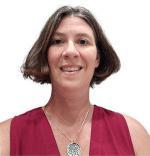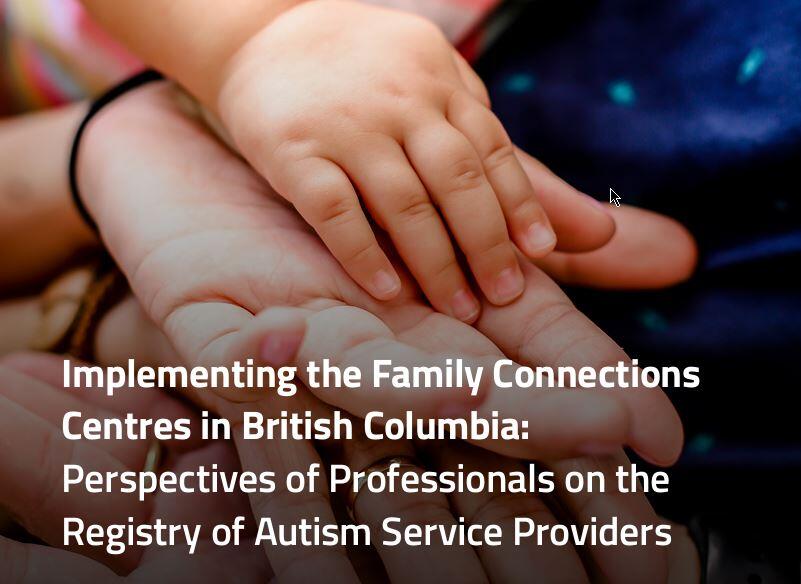2023 Summer Camps & Activities
Summer is just around the corner! To help families find recreation opportunities, ACT has been gathering information on fun activities for all ages.
Submit your activities
If you have a camp, program or event to share with families who have children with a range of diverse needs, please submit your activities here. Please note that we are looking for more specialized resources that will address the needs of neurodiverse children.
Please note you must check with the Autism Funding Branch to confirm that they will reimburse registration for a U.S. based online summer camp.
Implementing the Family Connections Centres in British Columbia: Perspectives of Professionals on the Registry of Autism Service Providers
Therapy Centres without Therapists?
Clinicians expected to staff the newly announced Family Connection Centres (FCCs) across the province are concerned about its effectiveness, a survey carried out by researchers at Simon Fraser University reports.
‘Implementing the Family Connection Centres in British Columbia: Perspectives of Professionals on the Registry of Autism Service Providers’ (RASP), is based on a survey of 1,000 clinicians listed on the RASP. It received 485 responses – an unusually high response rate. The results are unambiguous:
- Only 9% of respondents “agreed/strongly agreed” that the new Family Connections model will be effective in addressing the needs of all children requiring support.
- 37% of RASP professionals reported that they were unlikely/very unlikely to work for an FCC.
- 42% responded that they did not have enough information to decide.
- 75% of respondents agreed/strongly agreed that quality of care will be compromised within the proposed FCC model.
- 82% agreed/strongly agreed that this new model will lead to cumbersome bureaucracy.
- Qualitative analysis of open-ended responses revealed major concerns (e.g., two-tiered system, poorer quality of services, long waitlists).
In October 2021, the Ministry of Children and Family Development (MCFD) announced over 40 Family Connection Centres as a more equitable system for children with disabilities requiring therapeutic and support services. The FCCs were announced as a response to criticism of MCFD’s long standing policy of limiting support to services for children with disabilities unless they have a diagnosis of autism.
The announcement has been met with intense criticism from diverse organizations, especially those representing children with autism, because it entails the ending of individualized funding and expands the number of children who will be served, by at least a third, without making a commitment of significant new funding. This has raised the fears that the centres will be beset with long waiting lists as they will not be able to serve the number of children who require services given the province-wide shortage of clinicians.
Clinicians on the RASP include Behavior Analysts, Occupational Therapists, Speech-Language Pathologist and Physical Therapists who provide therapy to children with a wide-range of disabilities, in addition to autism. This makes the survey relevant to the issue of how these new centres will attract staff given wide-spread shortages of these professionals in both the private and public sectors and the higher wages in the private sector.
Dr. Grace Iarocci, Professor of Psychology at SFU and Director of the Autism and Developmental Disabilities Lab who led the research explains:
“The current system does need extensive reform as all disabled children need skilled support but creating physical centres does not address the human resource shortage that has been created because of lack of public funding to train and pay clinicians – especially Indigenous clinicians whose communities are particularly underserved.”
Deborah Pugh, Executive Director, ACT – Autism Community Training highlights the fears among families:
“The concern is that these centres will warehouse all children with disabilities together, regardless of their individual needs, negating decades of developing individualizing supports in communities allowing families to make choices that fit their child. Indigenous leaders have highlighted this concern which is particularly difficult for families who have experienced the legacy of residential schools, but it is shared widely by families who have experienced rejection from government systems – especially public schools.”
To speak with Dr. Grace Iarocci and for more information on this report, contact Vanessa Fong at [email protected]
For more information on ACT – Autism Community Training, contact Deborah Pugh, at [email protected]
Analysis identifies serious flaws in MCFD’s proposed tools for determining how children with disabilities qualify for support
In late 2021, BC’s Ministry of Children and Family Development (MCFD) announced sweeping changes to how it intends to provide funding and services to children and youth with disabilities. Since that time, parents, advocates, and service providers have raised questions and concerns about various elements of the proposed new system. This includes the needs-assessment tools the new system will rely on to decide which children with disabilities should receive support. Caregivers are expected to fill these in online.
An analysis by Dr. Pat Mirenda, Professor Emerita, University of British Columbia, supports concerns that these proposed tools have not been properly assessed by MCFD, in terms of their fit for ensuring that children have access to services.
To date, MCFD has not provided details of how it intends to use these pediatric evaluation tools, known as PEDI-CAT and Vineland-3. The only jurisdiction where this combination has been used internationally is Australia, where a study revealed that the PEDI-CAT tool disqualified 25% of children whose parents were concerned and whose pediatricians referred them for assessment. The Vineland-3 tool disqualified 4% of children.
In a recent letter to MCFD, a collective of organizations who work with and support families of children with disabilities, including ACT, noted that more consultation is needed to ensure that over reliance on these assessment tools will not cause harm or exclude children and families from the supports and services they need.
The British Columbia Disability Collective is a group of BC-based organizations, as well as clinicians, researchers, and businesses with hundreds of years of combined experience supporting tens of thousands of children and youth with disabilities and complex needs. They thank Dr. Mirenda for her analysis of a complex issue.

Inclusive Rally in Victoria
Wed, February 9, 2022
11:30AM- 1:30 PM PST
BC Legislative Building, Victoria
Join parents, advocates, caregivers and service providers of the most vulnerable children in BC on February 9th in person on the lawn of the BC Legislature in Victoria, as well as virtually for those that cannot attend in person. This is an Inclusive Rally to keep the pressure on the BC NDP and the Minister of Children and Family Development to Stop, Consult and Listen to all concerns with regards to the elimination of individual autism funding, the At Home Program and moving to a hub/centre-based system. There has been extensive criticism of the new framework by families, Indigenous leaders, opposition parties, disability groups and the media.
It is the position of the rally organizers that if MCFD really wants to help children with FASD, Down syndrome, ADHD and other disabilities, then the Minister should engage in meaningful consultation and give the choice of individual funding.
MCFD Announces CYSN Family Connection Centre Sessions
Please join the Ministry of Children and Family Development for small group sessions to discuss and explore the journey of children and youth with support needs and their families in the family connections centres. To maximize time for discussion and answer as many questions as they can, they will email you some pre-recorded materials to watch in advance.
LIMITED SPACES ARE AVAILABLE. REGISTER TO SECURE YOUR SEAT.
How to Register:
Families can register here.
Service Providers and Sector Partners register here.
Remembering Dr. Karen Raye Kester

This is a great loss for her friends and family, and for those families who have relied on her. Visit her obituary page here.
ACT thanks everyone who has donated in her memory.
等待孩子診斷評估時可以做些什麼 What to do while waiting for your child’s assessment

截至2021年十月此文發表時間止,Variety – the Children’s Charity 為財務狀況有限的家庭提供私人自閉症診斷的資金。因為收到許多資金申請表,目前資金申請的處理時間大約是八到十周左右。 想了解申請資金的詳細資料,請見 ACT’s Information Database. 另有 Jordan’s Principle 為居住在保留區的原住民提供私人診斷的基金。想了解 Jordan’s Principle,請見 ACT’s Information Database
等待時你可採取的積極行動
及早診斷固然重要,但家長在等待診斷時也是有許多事可以做的,尤其是家長對孩子因溝通能力遲緩造成的許多特殊行為表現還處於一知半解狀況的時候。 ACT在此頁面收集了許多資訊和資源,希望能幫助家長改善家庭生活功能,度過這段艱難的時期。
很可惜的,下列許多的公立資源都有等候期,所以家長一定要盡早聯絡開始排隊。如果你對孩子的發展有疑慮,請記得:不管孩子最終的診斷為何,家長本身學習如何積極介入、幫助孩子發展溝通能力是非常重要的。
確認 BCAAN (卑詩省自閉症評估網) 確實收到孩子的轉診要求
我們強烈建議家長與卑詩省自閉症評估網 BCAAN 的 Regional Coordinator(區域聯絡人) 確認對方有收到孩子的轉診要求,以避免轉診過程中出了任何差池而耽誤時間。同時你也可以確認等候時間並詢問對方是否需要其他相關資料。這個動作雖然無法加快時間,但至少能確實避免不必要的延遲。
如果在等私人診斷可詢問是否可上 cancellation list
詢問私人診所或專家是否有 cancellation list,代表如果有其他人取消約診,即會通知時間有彈性的人填補空缺時間。
準備一個文件夾保存紀錄
準備一個文件夾,保存和整理孩子的醫療紀錄和其他相關的發展或行為評估報告。 電子檔案更為理想,因為更方便電郵分享。你也可以開始觀察並記錄孩子在不同環境與不同人的行為表現,筆記或影像紀錄皆可。 這些資訊在將來診斷醫生詢問特定問題或需要填寫問卷時都會非常有幫助。
記錄你與不同機構和不同服務人員的聯絡過程。當你與下列許多服務人員和機構聯絡時,很容易會忘記或混淆服務。最好詳細記錄相關資料,包括機構名稱、聯絡人姓名、聯絡日期和溝通的內容。
了解使用社區內的支援服務
語言治療服務
各地衛生局皆有為五歲以下有語言遲緩的兒童提供免費語言治療服務。你可以詢問你的家庭醫生或直接連絡衛生局。此項服務可能有等候期,衛生局會通知你語言治療師何時可以見你的孩子。
了解居住地衛生局的聯絡方式,請見 Regional Health Authorities
嬰幼兒發展計畫與原住民嬰幼兒發展計畫
嬰幼兒發展計畫(IDP)是為了幫助三歲以下確診為或疑似有發展遲緩或身心障礙嬰幼兒的社區服務計畫。原住民嬰幼兒發展計畫服務的年齡層則延展到六歲,服務包含能反映原住民傳統文化、習俗、信仰與價值觀。
兩項服務都提供居家早期預防及干預服務。 顧問協助家庭面對發展障礙和學習幫助孩子發展的能力、提供所需的教材或工具、和建立家庭與社區服務的連結。
根據孩子的需求,顧問可以介紹其他的社區服務,包括兒童發展援助計畫和早期療育服務。家長可以要求此項服務或由公共衛生護士、家庭醫生或專科醫生轉介。此項服務長期經費短缺,所以家長要盡早開始轉介上等候名單。
尋找當地嬰幼兒發展計畫的聯絡方式,可搜尋 Healthlink BC Directory
兒童發展援助計畫與原住民兒童發展援助計畫
兒童發展援助計畫(SCDP)與原住民兒童發展援助計畫(ASCD)是為了提供12歲以下有發展遲緩或身心障礙的兒童相關支援,以利他們參與社區內托兒服務的社區計畫。 SCDP 在有照的托兒中心,幼兒園或課後托兒中心協助托兒教職員,家長及孩子。某些地區的服務可延展到 13 至19 歲的青少年。 家長可以自己要求服務或透過社區服務或醫療專業人員轉介。此項服務也是長期經費短缺有等候期,家長務必要及早開始轉介。
尋找當地的兒童發展援助計畫,可搜尋 Healthlink BC Directory
早期療育計畫
早期療育計畫(EIT)提供社區內的職能治療,物理治療,語言治療和支援服務。 此計畫是針對出生至學齡前,已有或可能有發展遲緩或身心障礙的兒童。家長可以自我轉介或透過專業人士如醫生或護士轉介。 這項計畫經費來自於兒童廳,通常由當地的兒童發展中心提供服務。如同上列服務,因為經費有限,通常家長都要等候服務。
要尋找你所在地的 EIT 計畫,可以詢問你的公共衛生護士,家庭醫生或是當地的兒童廳辦公室。
許多家長因為不堪長期的等候,會考慮尋找私人的治療師,但同時也有許多家庭無力付擔私人治療服務。如果你考慮尋找私人治療師,可以參考 Registry of Autism Service Providers (RASP) 名單。
兒童與青少年心理健康(CYMH)服務
兒童與青少年心理健康是(CYMH)一項由兒童廳提供的自願性免費社區服務。卑詩省境內約有多100多個診所提供免費心理評估和治療方案。服務項目通常包含心理諮商,社工服務,教養支援和精神醫療服務。但是除非孩子處於危機狀態,否則一般都需要等候服務。
想了解更多 CYMH 的服務,請見 Child & Youth Mental Health Intake Clinics
學習何謂自閉症及其治療方式
了解何謂自閉症可以幫助你在孩子診斷過程中更有效的提問。學習不但可以幫助你在孩子確診後立即採取行動,更可以提供你實用的方法解決日常生活所需面對的困難,如睡眠和如廁訓練這些影響許多孩子的常見問題。 不管你孩子最終診斷為何,下列的資源都會對你有極大幫助。
注意: 確保你的資訊來源是由有資格的研究學者或臨床專家所提。網路上充斥著許多所謂的奇蹟療法, 不但浪費金錢更浪費寶貴的時間。 ACT’的自閉症資料庫 篩選了上千樣資訊,包含與自閉兒童,青少年,成人及家庭息息相關的多樣主題,供大家參考。努力學習的同時,請注意下面幾點:
- 了解那些問題是自閉症,那些不是。 你的孩子無論如何就是一個孩子,不管最終診斷為何,某些問題(如腸胃消化問題或嚴重行為問題)都應該重視處理。
- 從孩子學習。 每個孩子生來皆不同,每個自閉兒也是如此。 你可以開始觀察與記錄孩子的日常表現,這些紀錄可以幫助你了解孩子的行為模式,發展與學習的進步。 不管孩子是否診斷為自閉症,你都可以將這些紀錄與學校老師或其他治療師分享,幫助他們了解你的孩子。
- 開始研究治療方案。不管最終診斷為何,評估結果很有可能發現孩子有發展遲緩或社交溝通上的障礙,需要行為干預,語言治療或職能治療。評估診斷的醫生或專家通常會提供家長有關治療方案的建議。 如果你想立刻開始治療或是想先做準備,可以參考 ACT的新診斷中心,其中包含科學認證且實用的資訊,幫助卑詩省內的家長為孩子建立有效的治療團隊。
如何在家幫助孩子
家長和其他家庭成員有很多方式可以在家庭或社區環境裡協助孩子學習成長。專家的幫助固然重要,但事實上,你的孩子與你相處的時間比與治療師相處的時間要長出許多。 以下的網上資訊,包括 ACT 的線上視頻,都可以提供你許多的方法,讓你在等候診斷期間也能幫助孩子成長。
如果你孩子已接受上述的社區服務,可以與其中的專業人員分享你對孩子的觀察,討論你的疑慮並請教他們是否能建議一些方法讓你在家與孩子練習。
以下是一些在 ACT’s Information Database 自閉症資料庫和 Autism Videos @ ACT 線上視頻裡可找到的免費又實用的資源::
- Baby Navigator: 這是由 First Word Project 與 Autism Navigator 開發的線上資源,幫助家長啟蒙嬰兒早期的學習及語言發展。
- Help is in Your Hands: 這是根據丹佛早期模式 (ESDM) 發展的線上資源,幫助家長在日常生活中加入簡單的干預技巧幫助孩子。
- What Can I Do with My Child All Day? Strategies for Supporting Young Children(如何幫助小齡孩子–在家一整天可以做些什麼?) Dr. Pat Mirenda 和 Dr. Paola Colozzo 主講
- Parents are Teachers Too! Embedding Instruction into Daily Routines and Activities(家長也是老師!利用日常生活教學) Brenda Fossett, PhD, BCBA-D 主講
- Make It Stop! Understanding and Preventing Problem Behaviors(停止問題行為!由瞭解和預防做起) Brenda Fossett, PhD, BCBA-D 主講
- Helping Your Child with Autism Thrive in Sport and Recreation(幫助你的孩子在娛樂運動中成長) Stephanie Jull, PhD 主講
ACT的職員可以引導你尋找類似上述的資源。 我們也可以提供資源幫助你為神經發展障礙孩子爭取縮短等候各項服務的時間。請電郵 [email protected] 聯絡我們。 ACT的臉書 也為家長提供各種相關訊息。
另一個提供個別諮詢和轉介服務的單位是兒童廳的自閉症諮詢服務,他們同時也管理 Registry of Autism Service Providers (RASP) 名單:
Autism Information Services British Columbia (AIS BC)
3688 Cessna Drive, Richmond, British Columbia, V7B 1C7
Toll Free Line: 1-844-878-4700
Email – Info: [email protected]
Website: autisminfo.gov.bc.ca/
RASP List: autisminfo.gov.bc.ca/rasp/search
ACT另有 Registry of Autism Service Providers 相關資訊網頁供家長參考。
Autism News from around the Internet
- I’m going to be blunt: our neurotypical school system is the problem | Elly Desmarchelier
- Six-year-old student restrained in infant high chair at NSW school, family claims
- Students as young as five with disabilities disproportionately suspended from Australia’s schools
- How the rise of autism and ADHD fractured Australia’s schools
- With her Netflix comedy special Autistic Bikini Queen, Fern Brady is a cynic to savour

